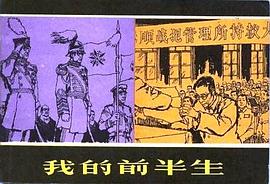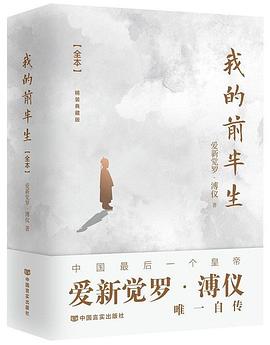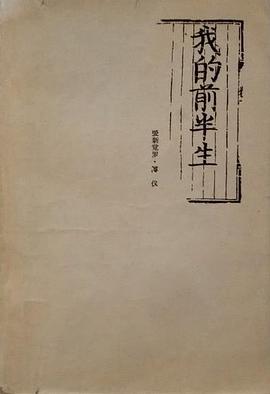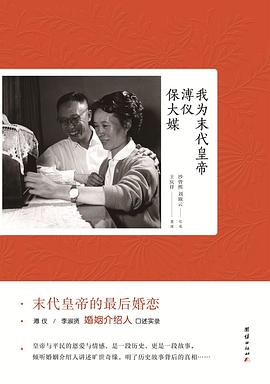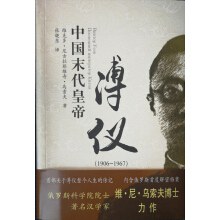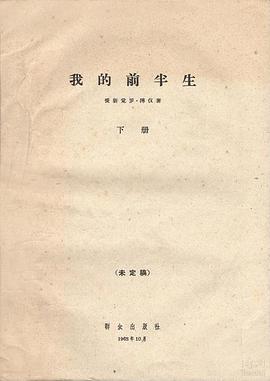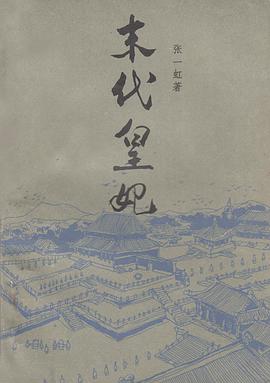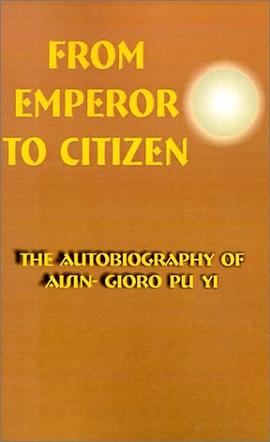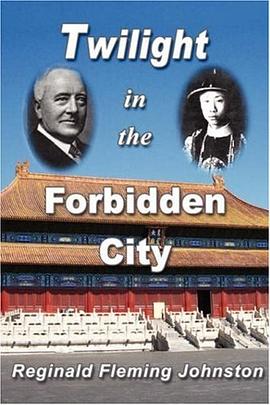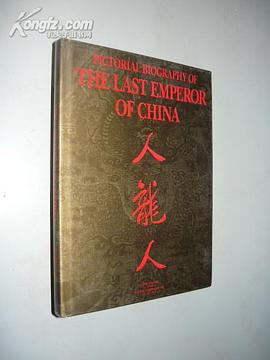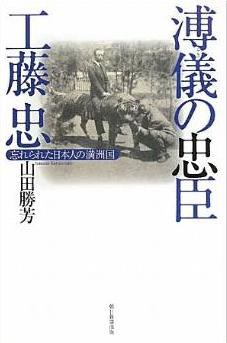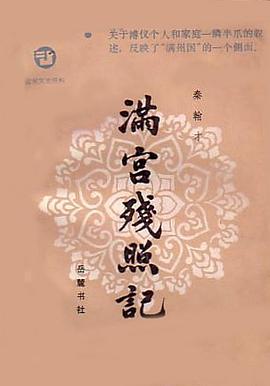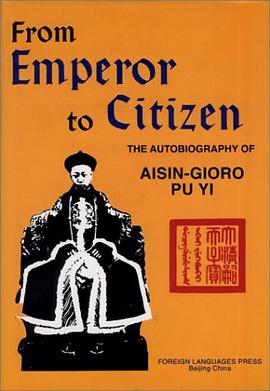

From Emperor to Citien is the
autobiography of Pu Yi, the man who
was the last emperor of China. A
unique memoir of the first half of the
20th century as seen through the eyes
of one born to be an absolute
monarch, the book begins with the
author's vivid account of the last,
decadent days of the Ching Dynasty,
and closes with an introspective
self-portrait of the last Ching emperor
transformed into a retiring scholar
and citizen of the People's Republic
of China.
In detailing the events of the fifty
years between his ascension to the
throne and the final period of his life
as a quiet-living resident of Beijing,
Pu Yi reveals himself to be first and
foremost a survivor, caught up in the
torrent of global power struggles and
world conflict that played itself out
on the Asian continent through many
decades of violence and upheaval.
This firsthand description of the
dramatic events of Pu Yi's life was the
basis for the intemationally acclaimed
1987 Bemardo Bertolucci film The
Last Emperor which was named Best
Picture of the Year by the American
Academy of Motion Picture Arts and
Sciences. From Emperor to Citizen
readily lends itself to cinematic
adaptation as a personal narrative of
continuously significant and revea-
ling episodes.
Becoming emperor and then
forced to abdicate with the
establishment of the Republic of
China in 1911, all before he is seven
years old, Pu Yi continues to live in
the Forbidden City for another
decade, still treated as the Son of
Heaven by the moribund Ching court,
but in reality a virtual prisoner, with
little genuine human contact apart
from his beloved nurse Mrs. Wang,
his teacher Chen Pao-shen and his
English tutor Reginald Johnston.
When at the age of nineteen Pu Yi
is finally forced to vacate his isolated
existence within the Forbidden City,
he begins his long odyssey as the
dependent of the occupying imperial
Japanese regime, first in Tientsin, and
eventually installed as "emperor" of
the Japanese puppet state styled
Manchukuo in China's northeast
provinces. With the defeat of Japan
and the end of the Second World War,
Pu Yi faces a very uncertain future as
he is shunted off to Russia for five
years before retuming to a new China
transformed by revolution, where he
is confined in the Fushun War
Criminal Prison. Here he undergoes
several years of rehabilitation,
"learning how to become a human
being," as he calls it, before receiving
an official pardon and being allowed
to finally live as an ordinary citizen of
Beijing.
This autobiography is the culmi-
nation of a unique and remarkable
life, told simply, directly and frankly
by a man whose circumstances and
experiences were like no other.
具體描述
讀後感
那天一混蛋學生到辦公室來遊蕩,見我在看書,欲騷擾,遂打斷我並翻看我書的封麵。看後故意問道:“老師,你在看我的下半身哦?” 我白瞭他一眼,沒理他。 他不服氣,裝作很懂的樣子:“我知道,這是清代最後一位皇帝‘付’儀寫的嘛。” 我說得虧你還曉得是清代的,沒讓我白教你...
評分有誰把溥儀當作一個人,一個有血有肉的人,一個有七情六欲的人,而不是工具呢? 慈禧太後沒有,溥儀是他繼續控製政治的工具。 攝政王沒有,溥儀的存在保證他繼續受到優待,以及一年四萬八韆量的銀子。 太監和內務府沒有,溥儀是他們的錢袋子。 年近二十歲的溥儀,被囚禁在...
評分看瞭黃子華演的《非常公民》纔去弄來這本書和他洋師傅莊士敦的《紫禁城的黃昏》。 很喜歡溥儀的老師陳寶琛先生。“他笑的時候,眼睛在老光鏡片後麵眯成一道綫,一隻手慢慢捋著雪白而稀疏的鬍子”。 溥儀的毛筆字真的很漂亮呃。用自來水筆寫的就一般般瞭。以前聽老師說,毛筆...
評分狠納悶為什麼全本到作者亡去的四十多年後纔遲遲麵世。 仔細看完瞭全書後也沒發現有什麼政治隱諱,但願再過若乾年能有本“超全本”麵世。 順治皇帝的齣傢偈中有一句話:“朕本西方一衲僧,奈何生入帝王傢。”說得作為九五之尊的無奈之處。以前愛玩一個叫做《皇帝》的遊戲,在...
評分用戶評價
1.17-4.7,疫情期間英語學習。《我的前半生》英譯本,潘傢園買的。沒看過中文原版。兼學英語和曆史。跌宕起伏,悲劇人生,以及重新做人。在後半部分,一直懷疑一個人真的能被改造嗎?如果是真的,那我黨思想改造的本事太大瞭。如果是真的,那最後兩節讓人感動得想流淚——特赦和迴到北京,以及那個最後纔揭露的真相。
评分1.17-4.7,疫情期間英語學習。《我的前半生》英譯本,潘傢園買的。沒看過中文原版。兼學英語和曆史。跌宕起伏,悲劇人生,以及重新做人。在後半部分,一直懷疑一個人真的能被改造嗎?如果是真的,那我黨思想改造的本事太大瞭。如果是真的,那最後兩節讓人感動得想流淚——特赦和迴到北京,以及那個最後纔揭露的真相。
评分很好的書。結閤末代皇帝這部電影來看。
评分不知饞瞭多少水份:)
评分北京書市淘的,大學時讀過中文版。舊書重讀似春潮,內容倒感覺像是新讀。最讓人春潮湧動的是在撫順,在哈爾濱監獄改造那段。飛龍不在天,也不再允許有飛龍的時候,方見人情,世味。但似乎又是昨日種種,都成今我的輪迴。不過終於還是remoulding過來瞭,thanks to magnanimousness。
相關圖書
本站所有內容均為互聯網搜索引擎提供的公開搜索信息,本站不存儲任何數據與內容,任何內容與數據均與本站無關,如有需要請聯繫相關搜索引擎包括但不限於百度,google,bing,sogou 等
© 2025 onlinetoolsland.com All Rights Reserved. 本本书屋 版权所有

